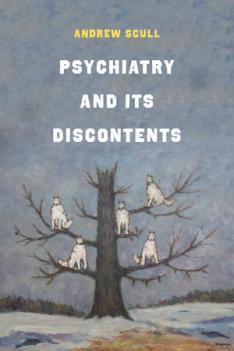The book: In this series of essays, psychiatry historian Andrew Scull *74 reflects on vast archive of treatments prescribed for madness and mental illness from psychoanalysis to pharmaceuticals. This book traces the history of the field of psychiatry as it developed from its earliest form to today’s cutting-edge research.
Psychiatry and its Discontents (University of California Press) shows the lasting impact of psychiatry on both practitioners and patients from the asylum to pharmacology as Scull probes what he calls the “enigma” of madness.
The author: Andrew Scull *74 is distinguished research professor of sociology and science studies at the University of California, San Diego. He is past president of the Society for the Social History of Medicine and the author of numerous books, including Madness in Civilization and Hysteria.
Opening lines: I must be a masochist. Almost a half century ago, I embarked on a study of lunacy reform in Victorian England. I have remained obsessed with madness ever since — as unsavory as many find the subject, and as stigmatized and marginalized as those who suffer from mental disturbances almost universally seem to be. Or perhaps I am one of Isaiah Berlin’s hedgehogs, fascinated by one big thing. If so, it is a thing that haunts all of our imaginations, one that all of our efforts at repression cannot succeed in entirely dismissing from consciousness. Madness reminds us of how tenuous our own hold over reality may prove to be. It challenges our very sense of what it means to be human. Madness continues to tease and bewilder us, to frighten and fascinate, to challenge us to probe its ambiguities and depredations. Reason and unreason coexist uneasily in our everyday lives, their boundaries fraught and contested. And, like every society before it, twenty-first-century America finds its efforts to confront and solve the problems posed by serious forms of mental disturbance largely unavailing and frequently counterproductive.Reviews: “The definitive account of the treatment of mental illness from its beginnings to the present day. An outstanding accomplishment.” — Patrick McGrath, author of Spider, Asylum, and Trauma


